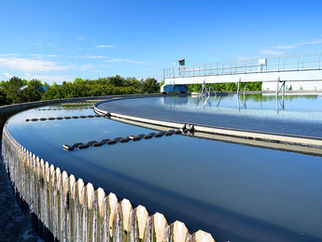top of page
Dr. Aristide FRASCOLLA , the laboratory director, has managed the health and hygiene aspects of numerous companies over 40 years.

LAB N° 1993 L
40
Years of experience
+300
Satisfied companies
+5000
Analysis per year
+200
Pools analyzed
LABORATORY
Accredited according to the UNI EN ISO/IEC 17025:2018 standard with N°1993L.
Registered in the Regional list of laboratories, not connected to the food industries, which carry out analyzes for self-monitoring purposes.
Proficiency Test
Participates in various Proficiency Test programs (UNICHIM and FAPAS).
Scientific data
Reliability and certainty of analytical data.
FAQs
Frequent questions
-
What guarantees does an Accredia accredited laboratory provide compared to non-accredited laboratories?The accreditation issued by ACCREDIA is the formal recognition of the Laboratory's competence to carry out the tests for which the Laboratory requested and obtained the accreditation itself. Accreditation involves verification of the technical competence of the laboratory in relation to the accredited tests and of its quality management system, in compliance with the UNI CEI EN ISO IEC 17025 standard. With this accreditation, ACCREDIA ensures the technical competence of the staff, the adequacy of the equipment and equipment and the suitability of the structure. ACCREDIA periodically carries out random checks on all tests subject to accreditation and on the Laboratory's quality management system. Furthermore, according to Legislative Decree no. 31/2001 and subsequent amendments, the manager of a water system (e.g. an owner of a tourist accommodation facility) must make use of accredited laboratories.
-
What relevance does a test report issued with the Accredia brand have?The test report issued under accreditation certifies that the supplier has met all obligations to provide a reliable and high-quality product or service, according to internationally recognized standards ;
-
How to reduce the risk of legionellosis?It is possible to reduce the risk of legionellosis by implementing specific preventive measures, including careful monitoring aimed at identifying the possible presence of the microorganism with targeted analyses, adoption of particular internal procedures and installation of anti-legionella systems.
-
If the analyzed water is not suitable, are there solutions that allow me to improve it?Certain. The parameters that can be improved are many and range from the microbiological to the chemical aspect. Based on the results of the analyses, our technicians will present various solutions aimed at resolving any critical issues identified.
-
Is it essential to periodically check the water in a swimming pool?It is essential as the periodic inspection of a swimming pool is regulated by the Self-Control Plan required by current regulations.
bottom of page





